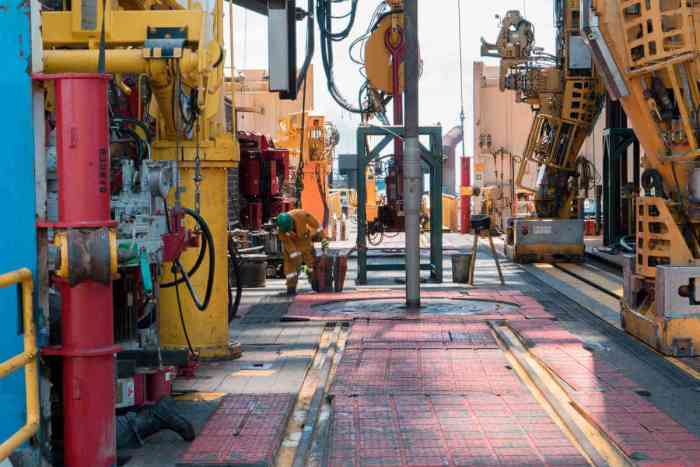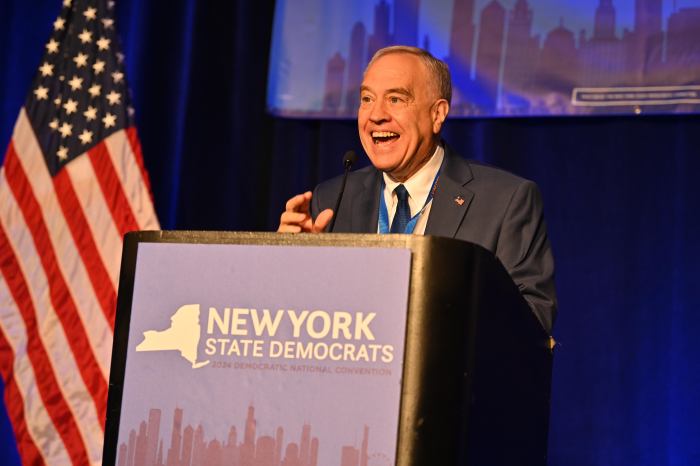Concerns by rights groups and Democrats about conflict of issues involving new Secretary of State Rex Tillerson on the job have not emerged so far but Guyanese government officials have found it necessary to push back on fears that his stewardship at the department will allow him to have undue influence on the country’s emerging oil and gas sector, its laws and regulations going forward in particular.
Tillerson was recently confirmed by Congress to hold one of the more powerful positions in the cabinet. Until President Donald Trump tapped him to head up the State Department, Tillerson was the head honcho at ExxonMobil which back in mid-2015 had reported finding “world class” deposits of oil and gas off the Guyana coast. Exxon is the first player to have found oil and gas in such large commercial quantities after decades of on-and-off exploration efforts by several companies.
That he is now at a department which has a unit advising countries on how to protect themselves from powerful multinational corporations has triggered fears that he could have a hand in determining the kind of laws Guyana drafts now that the country is preparing to switch to an oil and gas economy from decades of dependence on sugar, bauxite, gold, rice and timber among others.
Tillerson was headed to Guyana on a company jet for talks with Guyanese President David Granger and other high officials during the same week that Trump identified him as his man at the department. As expected, the visit was scrubbed.
The move encouraged several influential outlets such as the Washington Post and Huffington Post to do pieces on Tillerson and the possibility of influence peddling, suggestions Tillerson had dismissed during Congressional confirmation hearings.
Seeking to dispel suggestions that Guyana would be under the unwelcome hand of Tillerson, State and Exxon, Guyanese Foreign Minister Carl Greenidge was this week adamant that Tillerson nor any agency within the department would have any undue influence in local oil and gas regulations going forward.
“Guyana passed legislation on oil exploration and its exploitation long before the Exxon discovery — as far back as 1986. It is worth noting that while Guyana has received technical assistance from time to time from several countries — most notably from Canada and the UK in the years after independence — Guyana itself has also contributed in this field to many international agencies such as the Commonwealth Secretariat and the World Bank as well as foreign governments from Papua New Guinea to Ethiopia. Guyana is hardly the country without expertise, or the country wholly dependent on the US that the author attempts to portray it as,” Greenidge contends.
Government appears to be particularly miffed by a portion of the Washington Post piece that argued that the country has “no real framework for regulating multinational oil companies like Exxon” as this in itself makes the country both beholden and vulnerable to Exxon. Greenidge says “there are many erroneous comments which are made in an apparent attempt to portray Guyana in a false and negative light.”
But even as cabinet wants to set the record straight internationally, Exxon is ploughing ahead by drilling new wells and testing the commercial viability of those it has already drilled.
Engineers were this week preparing to move the drill ship from the successful Payara location to a new well site as it continues to develop its 2015 find with a likely production start up timeline of 2020.
Estimates on how much the find is worth to Guyana range from $70 to $200B but these will be adjusted as drilling continues and as more oil and gas are found. Up to 17 wells are planned, some to store gas until the company is ready to deal with gas deposits commercially.
“These patently false assumptions of Guyana are unfortunate but we know well that such statements are made by those who do not bother to ascertain the facts. More worrying is the link made in the blog post between Venezuela’s militarisation along Guyana’s border and its incursions into Guyana’s waters as if it is somehow Guyana’s fault for having agreed to given exploration licenses to Exxon and other companies to develop its offshore resources.”




















